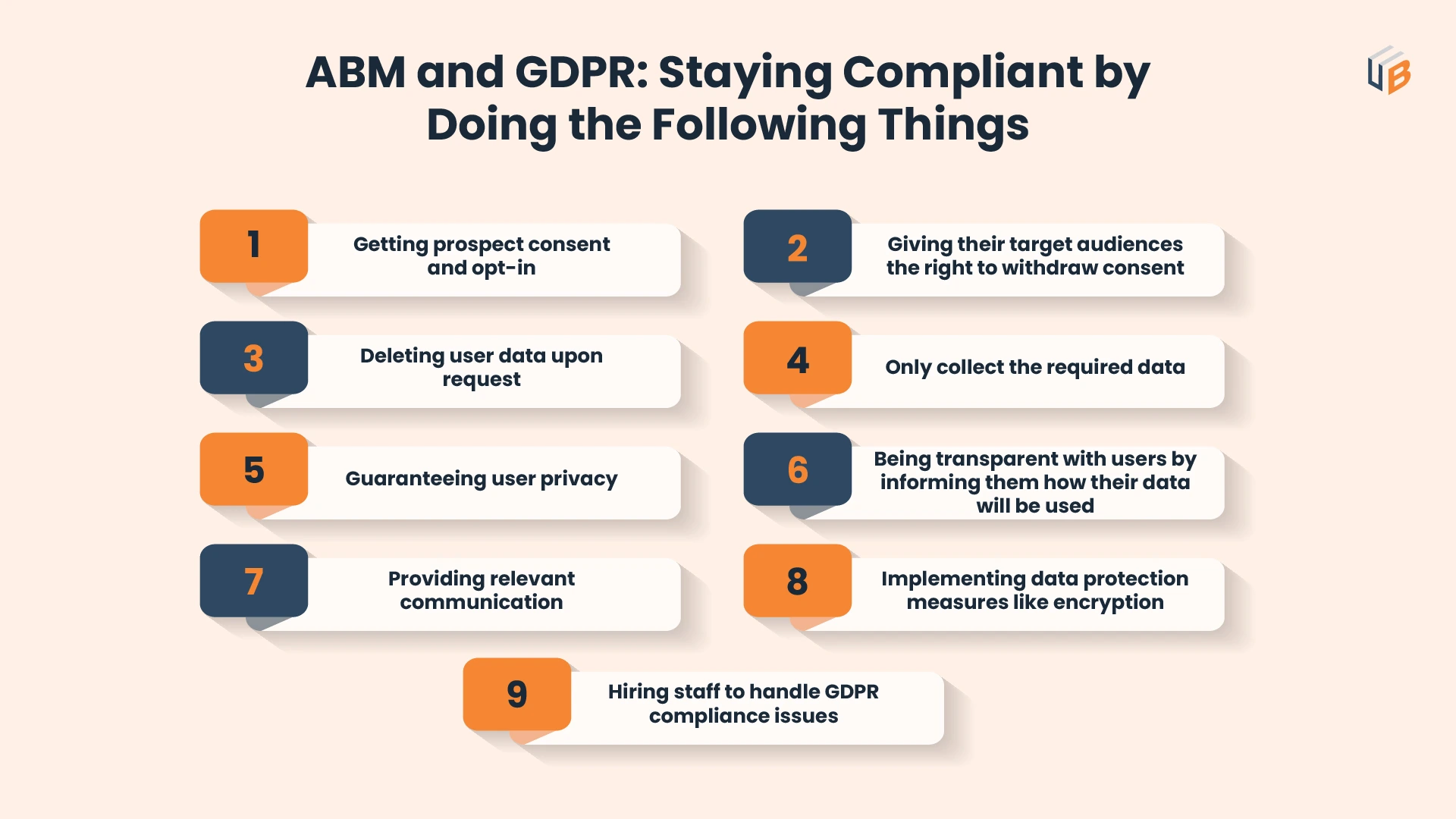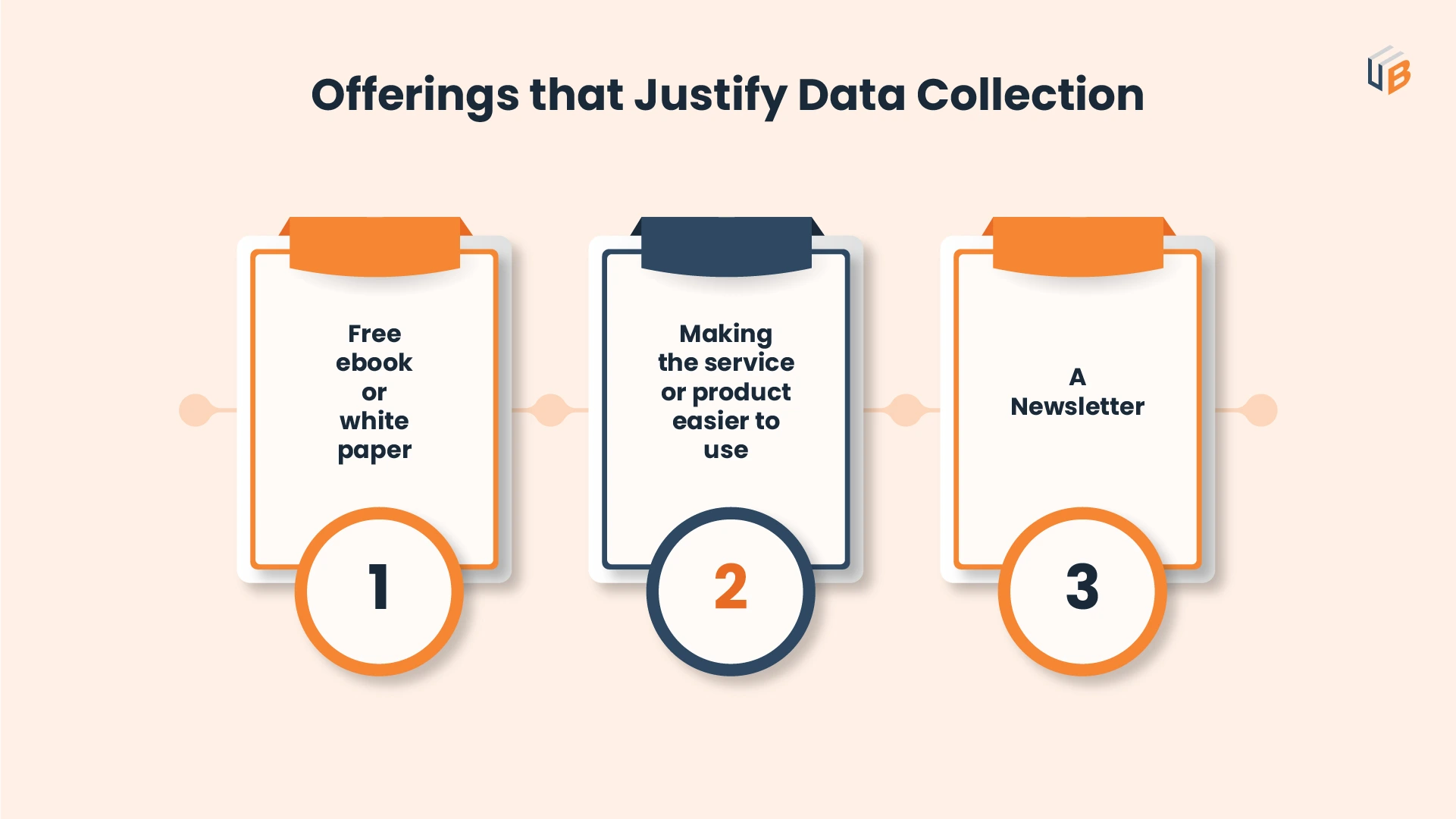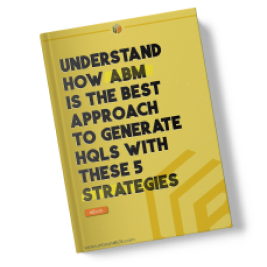
In 2018, the European Union enacted the General Data Protection Regulation (GDPR) legislation.
But, while this comprehensive data privacy law initially affected Europe, it set the stage for legal changes in the way companies handle customer data across the globe. Since the legislation came into effect, similar laws have been enacted in some states within the US, Israel, and South Africa.
The rules in these laws may vary, but the underlying principle is the same. Companies must be careful in the way they use and handle customer or prospect data, especially information that identifies individuals like name, email address, company, and job title.
In Europe, the GDPR guidelines apply to all sectors. They govern the processing and transfer of personal data by businesses of all sizes. GDPR provisions also apply to companies that target and collect data from EU audiences.
So, what does this mean for companies that use the account-based marketing (ABM) approach?
In this article, we evaluate the synergy between ABM and GDPR and show you how complying with GDPR regulations can enhance your ABM strategy.
ABM and GDPR: The Convergence Point
In recent years, ABM has gained popularity among B2B marketers due to its proven results. At the heart of ABM is the deliberate targeting of decision-makers in high-value accounts with personalized content delivered in a timely manner.
This requires marketers to collect and use the contact information from their target audiences. And in the wake of the GDPR, companies must review these practices to ensure compliance.
Ordinarily, brands build email lists and develop privacy policies to enable them to market products or services to their audiences online. Right after the GDPR took effect, companies across the world had to update their privacy policy.
They also had to ask the customers and prospects on their email lists whether they wished to continue receiving emails – a very risky thing to do from a marketing perspective. Many prospects probably didn’t respond, which meant going back to the drawing board to recollect contact data afresh.
ABM offers a better way to mitigate this risk. Instead of relying on a widespread collection of prospect contact data, it narrows your focus to specific accounts. This allows you to be more deliberate and scrupulous in targeting particular individuals in specific accounts and nurturing them with time.
The purpose of this lead generation strategy is to give ABM and GDPR a strong convergence point. GDPR presumes that internet users are more conscious about providing personal details to brands. This means B2B marketers must be prepared to do more before reaching out to prospects, an aspect that the ABM marketing strategy already emphasizes.

3 Steps for Aligning ABM Strategies with the GDPR
You can align their ABM strategies to ensure compliance with the GDPR guidelines by doing the following:
1. Be Aware of GDPR Provisions
The first step towards aligning ABM strategies with the GDPR is to understand the law. B2B companies must increase their awareness of the GDPR compliance regulations. Companies that don’t have internal legal departments can benefit from hiring a lawyer to check the GDPR regulations. The lawyer should inform them of the requirements and help them comply with those requirements.
2. Audit the Contact Database
Auditing prospect data is critical when it comes to implementing ABM strategies and GDPR compliance. Under the GDPR, maintaining a database of prospects without their consent attracts penalties. Companies should purge their customer contact data to ensure they conform with this standard. A data audit can help identify non-compliant contacts and bring to surface data safety issues that may not be obvious to your team.
3. Review Privacy and Cookie Policies
The GDPR contains specific provisions on privacy and cookie policies. Companies can only collect personal data from website visitors only after they’ve consented explicitly to specified usage. To comply with these provisions, companies must update their privacy and cookie policies.
Leverage the ABM-GDPR Advantage
When complied with, the provisions of GDPR can support the ABM marketing efforts made by any B2B company. Inherently, ABM is a very personal marketing approach. Marketers can in turn use GDPR provisions to their advantage in the following ways:
1. An Excuse to Reach Out to Prospects
Use GDPR guidelines as an excuse to approach individual prospects. Start by segmenting your target audiences and sending them personalized emails or making phone calls to important contacts is a good place to start. This act allows you to initiate contact and catch up with high-value prospects and start nurturing them- which ABM promotes.
2. Innovative Client Data Collection
You can use GDPR compliance guidelines to collect customer data. Once you have a solid customer base, offer them discounted trial rates or onboard them to high subscription plans. Better still, craft innovative and personalized ABM campaigns that align your client’s needs with your marketing goals.
For instance, you can introduce a new product feature that requires customers to save or share their data to access or use. This eliminates any fears you might have about what you’ll be using their data for. You’ll have to offer something valuable in exchange. Depending on the products or services you offer, you can consider options like:


3. Partnership Opportunities
GDPR guidelines provide partnership opportunities that B2B companies can use to their advantage. For instance, your company can leverage the current customer data it has by partnering with a company that offers it more value. The two companies can bulk up their data sets and meet their marketing goals while giving their customers better experiences.
When you are partnering with organizations, make sure you establish clear data-sharing agreements based on consent to maintain data compliance. These agreements specify all details of what data will be shared, how it will be used, and the security measures in place to protect it. It’s crucial to incorporate vulnerability detection strategies as part of these security measures, ensuring proactive identification and mitigation of potential data breaches. Lastly. it’s important to notify each party’s data protection responsibilities in the agreement and include clauses that require the other party to comply with data privacy laws.
Final Thoughts
The GDPR has had a big impact on B2B marketing across the globe. But from the perspective of account-based marketing, these regulations aren’t as bad as they sound. They place a lot of emphasis on getting consent from data owners and strong data privacy mechanisms to safeguard client information.
B2B marketers can leverage the law to boost ABM efforts. Considering the personalized nature of ABM, you can leverage GDPR provisions to reach out to decision-makers in key accounts and strengthen partnerships with strategic companies to meet marketing goals. Follow the steps and tips discussed above to comply with the GDPR and implement ABM strategies effectively.
Ready to explore these strategies further?

Our blog
Latest blog posts
Tool and strategies modern teams need to help their companies grow.

Video has emerged as one of the most effective tools to cut through the noise and con...

The way B2B buyers research, engage, and decide has changed and so must the way marke...

Channel marketing helps B2B companies grow by partnering with third-party sellers. It...






